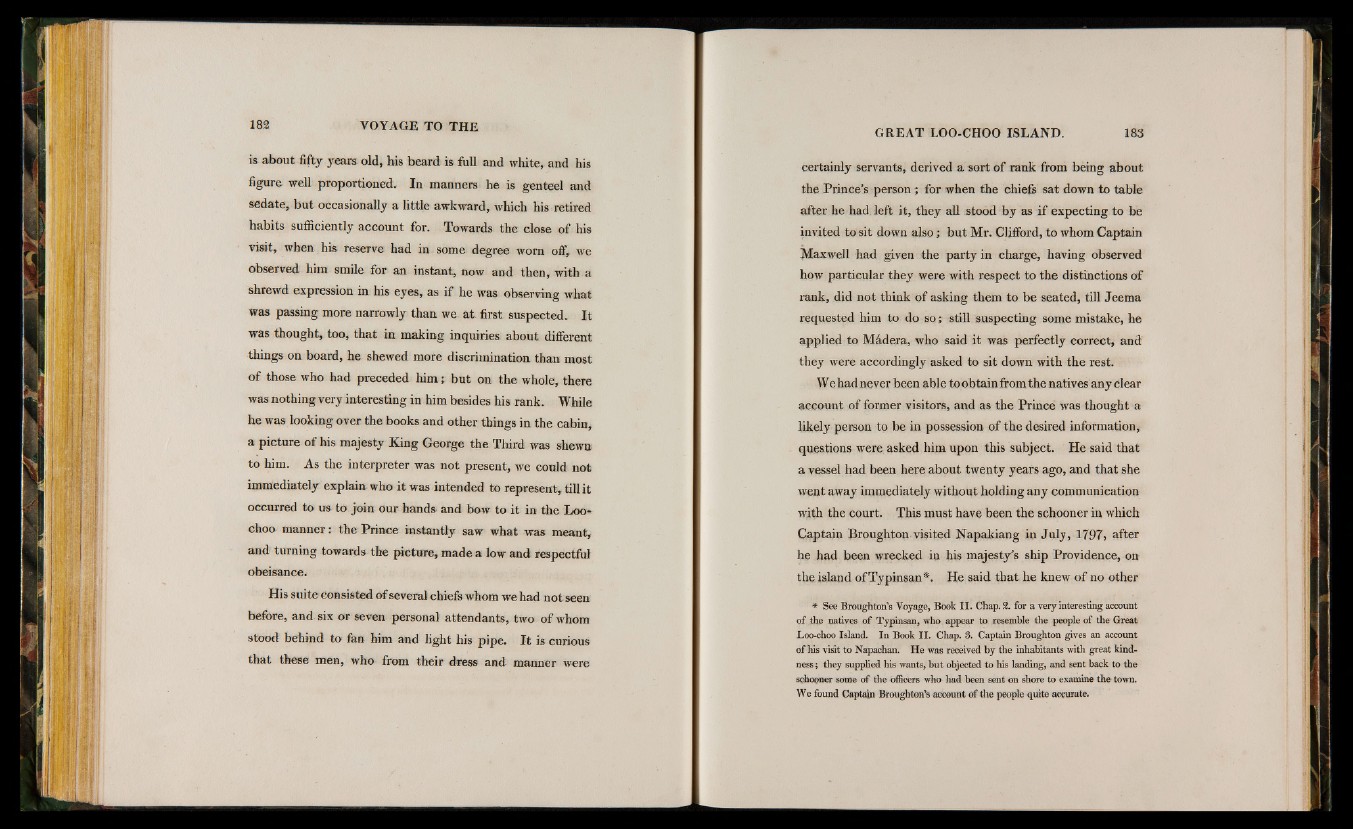
is about fifty years old, bis beard is full and white, and his
figure well proportioned. In manners he is genteel and
sedate, but occasionally a little awkward, which his retired
habits sufficiently account for. Towards the close of his
visit, when his reserve had in some degree worn off, we
observed him smile for an instant, now and then, with a
shrewd expression in his eyes, as i f he was observing what
was passing more narrowly than we a t first suspected. I t
was thought, too, that in making inquiries about different
things on board, he shewed more discrimination than most
of those who had preceded him; bu t on the whole, there
was nothing very interesting in him besides his rank. While
he was looking over the books and other things in the cabin,
a picture of his majesty King George the Third was shewn
to him. As the interpreter was not present, we could not
immediately explain who it was intended to represent, till it
occurred to us to join Our hands and bow to it in the Loo**
choo manner: the Prince instantly saw what was meant,
and turning towards the picture, made a low and respectful
obeisance,
His suite consisted of several chiefs whom we had not seen
before, and six or seven personal attendants, two of whom
stood behind to fan him and light his pipe. I t is curious
that these men, who from their dress and manner were
certainly servants, derived a sort of rank from being about
the Prince’s person; for when the chiefs sat down to table
after he had left it, they all stood by as i f expecting to be
invited to sit down also; but Mr. Clifford, to whom Captain
Maxwell had given the party in charge, having observed
how particular they were with respect to the distinctions of
rank, did not think of asking them to be seated, till Jeema
requested him to do so; still suspecting some mistake, he
applied to Mkdera, who said it was perfectly correct, and
they were accordingly asked to sit down with the rest.
We had never been able toobtain from the natives any Clear
account of former visitors, and as the Prince was thought a
likely person to be in possession of the desired information,
questions were asked him upon this subject. He said that
a vessel had been here about twenty years ago, and that she
went away immediately without holding any communication
with the court. This must have been the schooner in which
Captain Broughton visited Napakiang in July, 1797, after
he had been wrecked in his majesty’s ship Providence, on
the island ofTypinsan*. He said that he knew of no other
* See Broughton’s Voyage, Book I I . Chap. 2. for a very interesting account
of the natives of Typinsan, who appear to resemble the people of the Great
Loo-choo Island. In Book I I . Chap. 3. Captain Broughton gives an account
of his visit to Napachan. He was received by the inhabitants with great kindness
; they supplied his wants, but objected to his landing, and sent back to the
schopner some of the officers who had been sent on shore to examine the town.
We found Captain Broughton’s account of die people quite accurate.